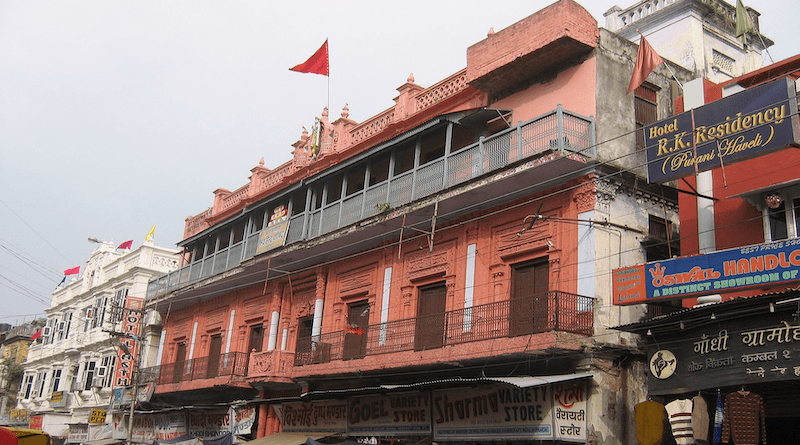Banning Nationalist Entities – OpEd
By Asad Ali
Rise of ultranationalist entities across the world increased extensively, while putting the entire political landscape of the globe at risk. These entities include political and non-political (armed), and are present everywhere in the world. In some areas, such nationalist entities are operating under the ambit of state and its political parties, which gives them more freedom to act freely while ignoring political norms, and have increased the risk of violent extremism.
To cater growing trend of rise in such organizations, global human right watchdogs and counties are working proactively in order to main political norms and provision of fundamental rights to the masses of respective countries.
In the recent past, the Biden Administration has designated some ultranationalist entities as militant religious organizations. These organizations are operating in India. In its newly published edition of the World Factbook, the Central Intelligence Agency (CIA) has named ultranationalist Hindu groups Vishva Hindu Parishad (VHP) and Bajrang Dal as ‘religious militant organisations’. The agency has categorised them under political pressure groups, defined as organizations that are involved in politics or that exert political pressure but whose leaders do not stand for legislative election.
The VHP has been characterized by critics as a Hindu nationalist organization with militant tendencies, particularly due to its involvement in certain campaigns and events that have been controversial and at times violent. The VHP has been associated with various campaigns and activities that have led to instances of social and communal tensions, including periodic clashes over religious and cultural issues. Some critics argue that the organization’s aggressive approach in pushing for its objectives, particularly those related to the protection and promotion of Hindu culture, has led to tensions and conflicts. On the other hand, the VHP itself has maintained that it is primarily a cultural and religious organization working to protect and preserve Hindu traditions and values. It has stated that its actions are meant to safeguard the interests of the Hindu community in India
The VHP has been criticized by some individuals, organizations, and analysts for its involvement in activities that have been perceived as anti-Muslim or contributing to communal tensions. These perceptions are often tied to the VHP’s role in campaigns and events that have led to conflicts between religious communities in India. The VHP played a significant role in the movement to build a temple dedicated to Lord Ram in Ayodhya, where the Babri Masjid stood. The demolition of the Babri Masjid in 1992, which was accompanied by widespread violence and communal tensions, is often seen as a controversial event that strained Hindu-Muslim relations.
The VHP has been critical of religious conversions and has organized campaigns aimed at converting non-Hindus back to Hinduism, often referred to as ‘Ghar Wapsi’ (homecoming). These campaigns have been criticized for causing social and religious tensions. The organization has also been involved in advocating for the protection of cows, which are considered sacred in Hinduism. This has sometimes led to tensions with Muslim communities, as the consumption of beef is common among them.
Likewise, Bajrang Dal and RSS are another groups in India, which have been working in collaboration with the ruling BJ. Both organizations are working on similar patterns of VHP and targeting non-Hindu groups particularly Muslims. These ‘pressure groups’ have been influencing decision making process in order to get maximum Hindutva driven policies. These Hindu fanatics have been there in Indian power corridor as well.
Naming such entities as militant religious groups is positive development and will surely put pressure on the governments to monitor their activities and refrain them from harming minorities. India is the largest country in the world where mob lynching, attack on minorities increased massively. It is high time for international community to put pressure not only on India but other countries as well to stop persecution of minorities and other ethnic communities as well.
Likewise, many international organizations, including UN, have mechanisms in place to monitor and address human rights issues globally. Advocating for the protection of minority rights and voicing concerns about any discriminatory practices is a legitimate approach. Diplomatic channels can be used to engage with governments on matters related to minority rights. Engaging in constructive dialogue can sometimes lead to positive changes, fostering an environment where concerns can be discussed openly. The approach of pressuring a country to change its policies can be delicate. Some argue that applying external pressure might lead to defensive responses, while others advocate for a combination of pressure and engagement to effect positive change.

